Single Incision Sleeve Gastrectomy
Our main objective is to make sure you are healthy. Experience unparalleled accuracy and proficiency at the hospital with Gujarat's top surgeon and gastroenterologist.
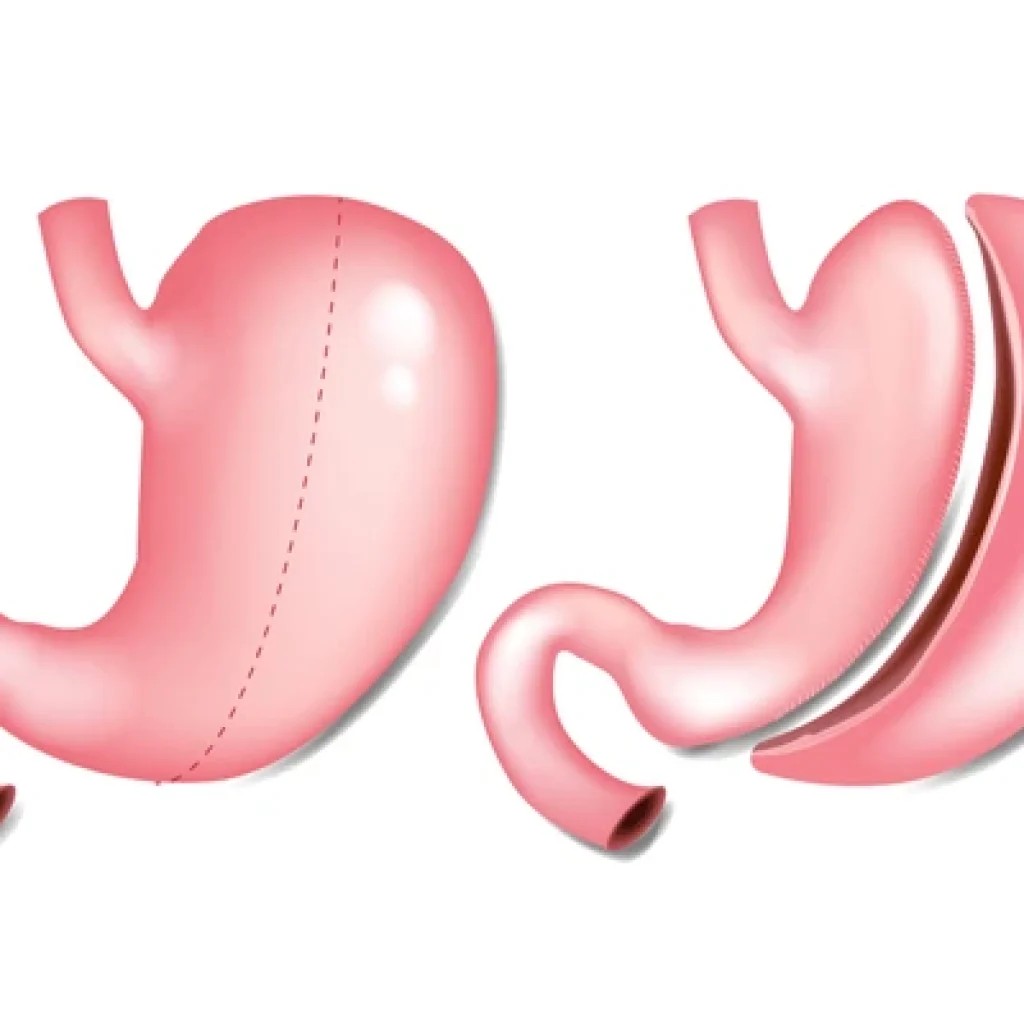
Understanding
What It Means?
Until a few years ago, having surgery was a daunting experience. Surgery resulted in a large scar that required a long time to heal, as well as a lot of pain, bed rest, and a significant amount of time away from work. The advent of laparoscopic and less invasive surgery altered this perception. Major gastrointestinal surgeries could now be performed through microscopic incisions. This reduced the healing time and allowed for a much faster recovery.
Understanding
Single-incision laparoscopic surgery is a step forward of traditional laparoscopic procedures. In 2008, the first single-incision laparoscopic surgery for bariatrics was performed. Single incision sleeve gastrectomy is a “scarless” method of doing sleeve gastrectomy. This procedure involves making a small 2 cm cut in the belly button and doing the entire surgery through this little cut. There will be no more wounds or scars on your abdomen. Once healed, there is almost no visible scar or indication of operation.
Single incision sleeve gastrectomy for weight loss is a weight loss surgery that divides the stomach longitudinally. This results in the construction of a long, narrow banana-shaped stomach with a significantly limited capacity for food intake. Single-incision sleeve gastrectomy surgery operates mostly based on food restriction. A single incision sleeve gastrectomy also enhances the rate at which the stomach empties and raises the levels of some gastrointestinal hormones. These, together with a reduction in the hunger-inducing hormone “Ghrelin,” result in weight loss and other metabolic benefits following sleeve gastrectomy surgery.
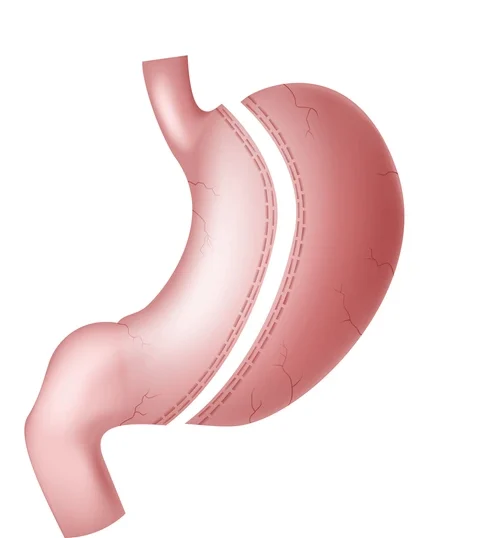
Are You a Candidate for Surgery?
Eligibility for Surgery
For Asian Candidates with a BMI ≥ 35 Kg/m²:
This surgery is recommended for those who are severely obese and do not have any accompanying health disorders.
For Asian Patients with a BMI ≥ 30 Kg/m²:
Bariatric/metabolic surgery should be explored for individuals who have type 2 diabetes or metabolic syndrome, provided lifestyle changes and medical treatments have proven insufficient.

For Asian Patients with a BMI ≥ 27.5 Kg/m²:
Laparoscopic Adjustable Gastric Banding may be considered as a non-primary option for patients with poorly controlled type 2 diabetes or metabolic syndrome.
Ideal Candidates for SILS
Single Incision Laparoscopic Sleeve Gastrectomy is particularly suitable for younger patients who are committed to maintaining a healthy diet and exercise regimen post-surgery. It is also effective for volume eaters and obese patients with newly diagnosed diabetes. This procedure is typically recommended for patients with a BMI of < 50 kg/m² and no history of previous abdominal surgery.
Surgical Preparation
Required preparations before surgery
Preoperative Medications
The medical team will administer necessary preoperative medications, including venous thromboembolism prevention, to ensure your safety during surgery.
Consultation with Specialists
The first step is a consultation with the surgical team, including a review of your medical history, diet, and physical and psychological evaluations to assess eligibility. Depending on your health, you may also need specialist consultations, such as with a diabetologist, endocrinologist, nephrologist, or chest physician.
Pre-operative Tests
To ensure the health of your gastrointestinal system, a pre-operative upper GI endoscopy is required before proceeding with any bariatric treatment.
Dietary Changes
You must follow a high-protein liquid diet for 5 to 7 days before surgery. This diet helps to shrink the liver, which may be enlarged and fatty due to obesity. Reducing liver size helps make the surgery safer and more efficient. Additionally, patients who strictly adhere to the pre-operative liquid diet have been shown to experience greater weight loss post-surgery.
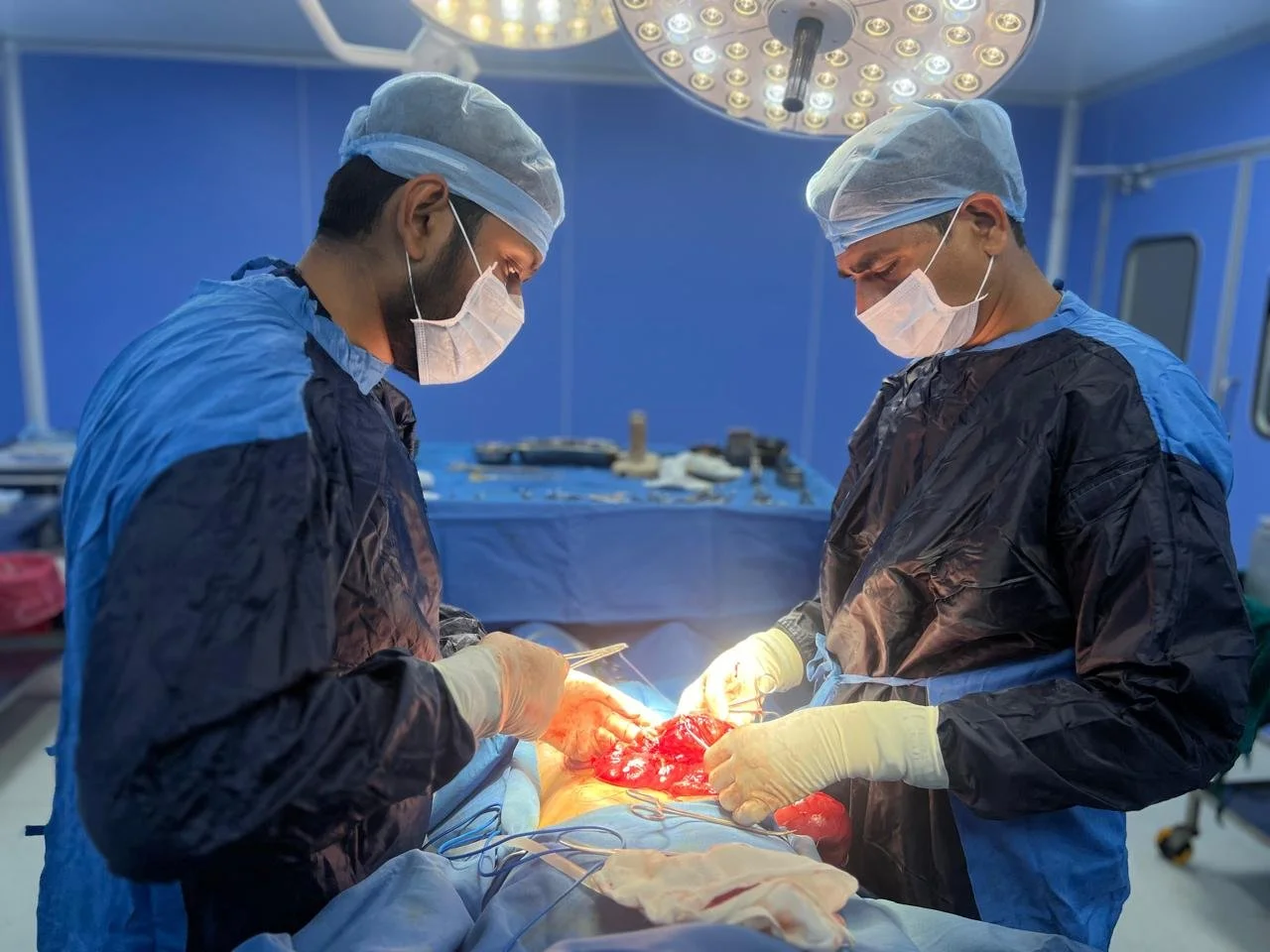
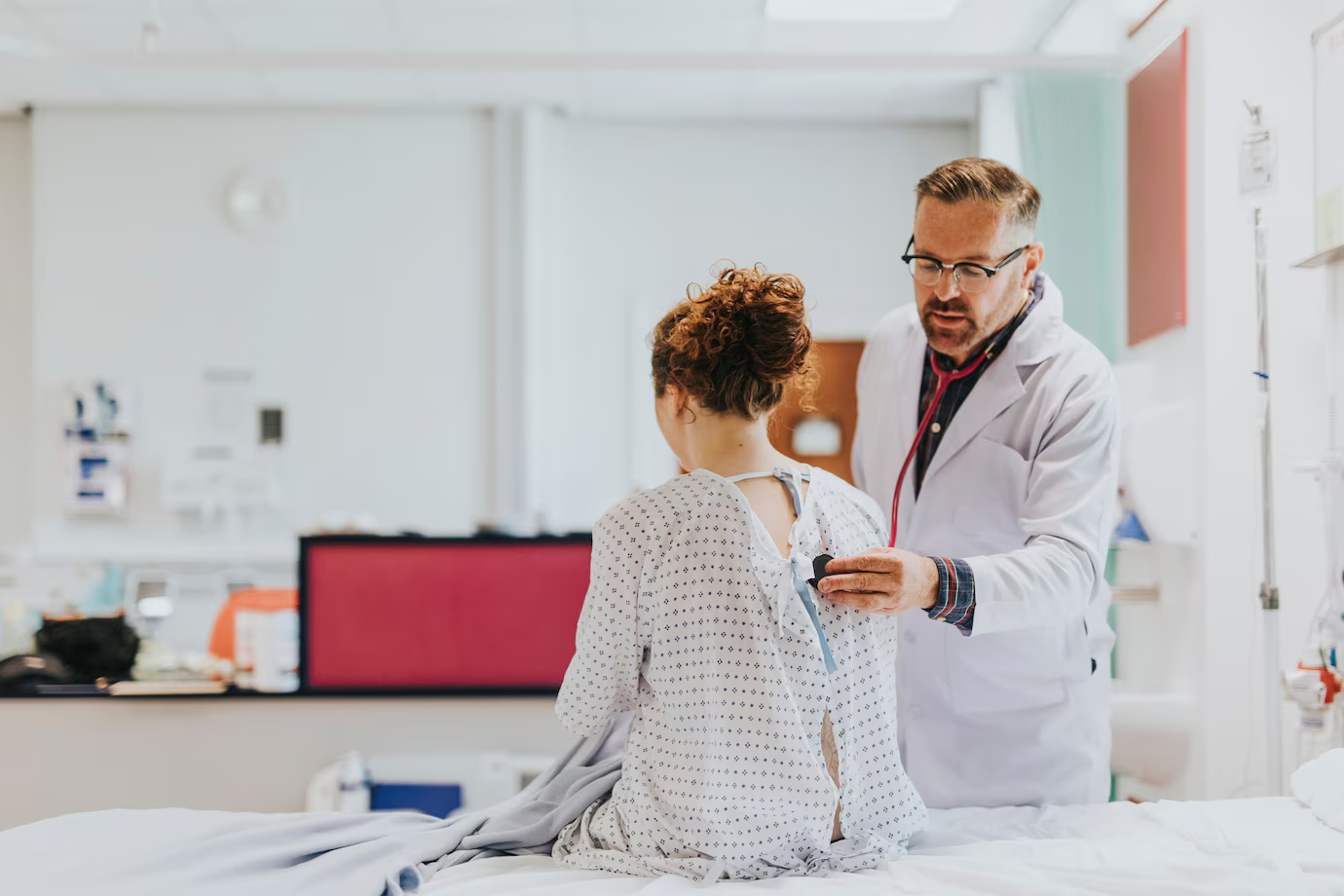

Your Surgery: What to Expect
The Surgical Procedure
Here’s what you can expect on the day of your surgery:
Admission: You will be admitted to the hospital the evening before your scheduled surgery. During admission, the necessary preoperative medications, including those for thromboembolism prevention, will be administered.
Fasting: You must fast for 6 to 8 hours before surgery to ensure your stomach is empty, which is important for anesthesia safety.
Anesthesia: The surgery will be performed under general anesthesia, so you will be asleep and pain-free throughout the procedure.
Surgery Duration: Single Incision Laparoscopic Sleeve Gastrectomy typically takes about 45 minutes to 1 hour to complete. The procedure involves making a single small incision to perform the surgery, which minimizes scarring and recovery time.
Post-Surgery Care: After the surgery, you will be encouraged to walk around on the same day to help with circulation and reduce the risk of blood clots. You will also be expected to use the restroom independently.
Liquid Diet: The day after surgery, you will begin a liquid diet. This is the first phase of your post-operative nutrition plan to ensure your stomach is healing properly.
Discharge: If everything goes well and you are recovering as expected, you will be discharged the day after surgery to continue your recovery at home.
Typical Results and What They Mean for You
Expected Weight Loss after Surgery
Following a sleeve gastrectomy, patients may shed up to 65-75% of their extra weight. Weight loss is influenced by a variety of factors, including the patient’s baseline weight, age, gender, associated co-morbidities, behavioural changes made by the patient, and so on.
Patients who embrace the lifestyle shift and follow the team’s behavioural adjustment instructions perform better following any weight loss operation, including gastric sleeve surgery.
Weight loss techniques should not be viewed as a shortcut. Both the doctor and the patient must be deeply committed. To attain the best results, follow the team’s diet and exercise for at least 30 to 45 minutes every day.

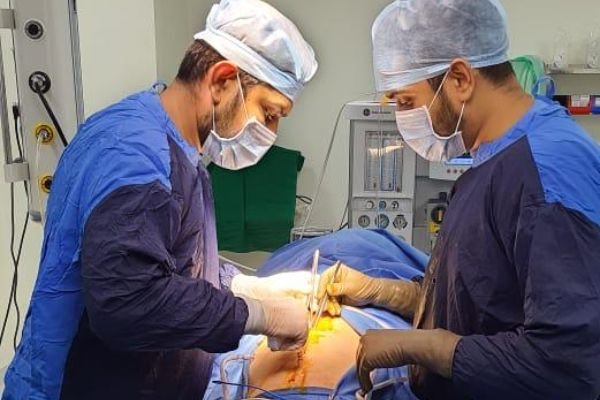
Not Sure What You Need?
Book Your Consultation with a Surgical Gastroenterologist Now
Simply give us a call and book an appointment for yourself. We are here to help. Walk into our hospital and let us take a closer look to suggest the best treatment you need.
Your Frequently Asked Questions
Insights from the Best Surgical Gastroenterologist in Gujarat
The day after surgery, you will begin with a clear liquid diet. If you tolerate liquids well and have no complications, you will be discharged the day after surgery. All medications, including those for venous thrombo-embolism prevention, will be explained to you before discharge.
Following the sleeve gastrectomy, you will be on a liquid diet for about 15 days. After that, you will transition to a soft and mashed diet for another 15 days. You can start eating normal home-cooked food after one month, but the quantity will be limited. You will also need to take nutritional supplements as advised by the medical team, and they will guide you through the supplementation process.
It can take a few months to develop new dietary habits, so don't worry—your team is always available to address any questions or concerns you may have.
After your surgery, you will begin with a liquid diet for approximately 15 days. Then, you will transition to a soft and mashed diet for another 15 days. After one month, you can start eating normal home-cooked food, but the quantity will be limited as your stomach adjusts.
Yes, you will need to take nutritional supplements as recommended by your healthcare team. The team will support you through the entire process of supplementation and help you adjust your diet accordingly to ensure proper nutrition and prevent deficiencies.
It can take a few months to develop new dietary habits. Your medical team will guide you through this process, and they are always available to answer your questions and provide support as you adjust.
Yes, regular follow-up appointments are crucial for ensuring the success of your surgery. We recommend strictly following the follow-up program provided to you after discharge. For the first year, you will need to see your doctor and the medical team frequently, and then once a year thereafter.
Yes, you will need to complete regular tests as directed by the staff. These tests are important for preventing dietary deficiencies and ensuring your health. Additionally, an upper GI endoscopy must be performed once a year following any bariatric surgery.
Dr. Jenit Gandhi is widely recognized as the best single incision sleeve gastrectomy surgeon in Ahmedabad. His expertise in advanced, minimally invasive bariatric procedures ensures reduced scarring, minimized postoperative pain, and faster recovery times. Dr. Gandhi's personalized approach to patient care guarantees that each individual receives a comprehensive, tailored treatment plan, which promotes successful weight loss and long-term health improvements.
